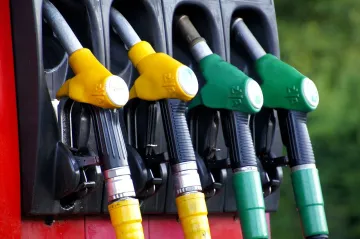New Delhi: State-owned fuel retailers, including Indian Oil Corporation (IOC), Bharat Petroleum Corporation Ltd (BPCL), and Hindustan Petroleum Corporation Ltd (HPCL), have refrained from adjusting petrol, diesel, and cooking gas (LPG) prices for almost two years, resulting in substantial losses when input costs were higher and profits when raw material prices were lower. Despite calls to revert to daily price revisions, they have held steady, citing extreme price volatility and the incomplete recouping of past losses.
The recent surge in international oil prices has further compounded their challenges. While prices softened late last year, they firmed up again in January, eroding profit margins. Currently, the industry is experiencing losses of nearly Rs 3 per litre on diesel, and the profit margin on petrol has narrowed to around Rs 3-4 per litre.
"There are losses on diesel; it had turned positive, but now oil companies are losing close to Rs 3 per litre," an industry official said.
In response to inquiries about fuel price revisions, Oil Minister Hardeep Singh Puri stated that the government does not dictate prices and that decisions are made by the oil companies based on economic considerations. He acknowledged the ongoing market volatility and indicated that price revisions may occur if the current trend of profitability continues into the last quarter of the fiscal year.
Despite the significant profits of Rs 69,000 crore reported by the three state-owned firms in the first nine months of the fiscal year, concerns persist about the duration of the price freeze and its impact on their financial health. The combined net profit for IOC, BPCL, and HPCL during this period surpassed their annual earnings in the pre-oil crisis year.
"They had losses when they voluntarily decided not to raise prices (despite oil prices going up)," Puri said.
The decision to freeze fuel prices dates back to April 6, 2022, amidst rising international oil prices and concerns about inflation and economic recovery. Despite fluctuations in global oil markets, the freeze has remained in place, reflecting the challenges faced by fuel retailers in balancing consumer interests and financial sustainability amidst volatile market conditions.
(With PTI inputs)
READ MORE: EIH shares hit 20 per cent upper circuit after robust Q3 performance
READ MORE: Jana Small Finance Bank IPO opens today, here's all you need to know
Latest Business News
